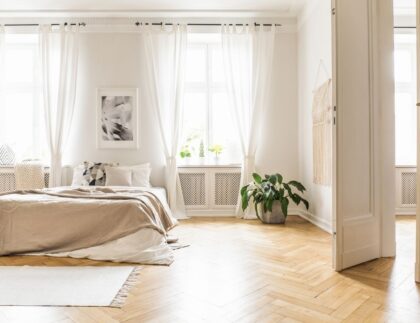
Make your sleeping space serene
To get good sleep, you need a space to sleep that you’ve dedicated entirely to sleeping. After your bedtime routine is complete and you enter your bedroom, and just the atmosphere should be able to signal your body that it’s time to relax and rest. Consider painting the walls a calming, cool color. This can subconsciously calm you down even after a stressful day. One of the most important things to do is to ensure you make your bedroom cozier. A cozy, warm space to cuddle up and release stress from the day is essential to restful sleep. One way to add to the snoozy atmosphere is by investing in a lavender-scented pillow spray. The scent can signal your body that it’s time to chill out and get some Z’s.
Incorporate relaxation into your life
A lifestyle that is all stress all the time is not conducive to restful sleep. Try to incorporate elements of relaxation into your daily life. Add a quick 15-minute meditation session to your morning wake-up routine, take up yoga, or even get a massage membership so you can get bi-weekly or monthly massages to add a little relaxation to your life. In stressful situations, try to take a few moments to just breathe and remind yourself that you can handle the situation and that it will be okay at the end of the day. Little self-reassurances in day-to-day stress can help you to develop a habit of being a calmer person in general, allowing for some great sleep at night.
Get into a routine
Routines are crucial to the body’s natural cycles. Getting yourself into a regular bedtime routine can help your body to know when to get tired, when to fall asleep, and when to wake up—regulating your natural sleep cycle. A well-calibrated sleep cycle turns into consistency, and consistency is necessary for a deep sleep every night. Set a bedtime for yourself, and stick to it—and wake up at the same time every morning, too! This allows your body to learn its timeline with the sleep cycle.











